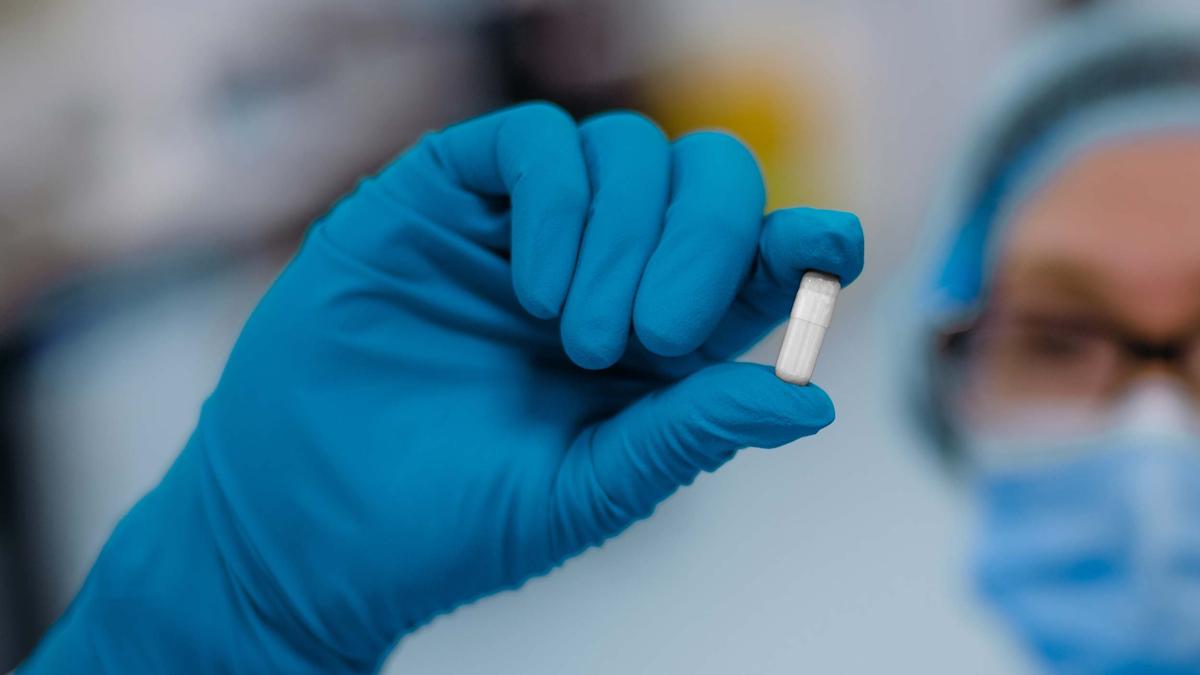How breath analysis could help those living with gut health issues like IBS

It has been estimated that 12% of the UK population suffer from irritable bowel syndrome (IBS), an umbrella term that describes a broad range of digestive symptoms, such as pain, cramping, and irregular bowel movements that can significantly reduce quality of life.
A diagnosis of IBS is usually made after clinical tests rule out other conditions, such as inflammatory bowel disease (IBD), coeliac disease, or cancer. For those who suffer from IBS, the frustrating and life-limiting symptoms can seem endless, with no clear treatment or little guidance available. This leaves many people feeling alone to manage as best as they can, and many turn to fad cures and may progressively restrict their diet over time out of desperation to lessen some of the symptoms.
The personal and the socio-economic impacts of IBS
This form of restrictive dieting puts IBS sufferers at risk of developing an eating disorder known as avoidant/restrictive food intake disorder (ARFID), where sufferers lose their enjoyment of food, seeing it merely as a means to get sustenance, and can eventually become nutrient-deficient and underweight. IBS patients are twice as likely to have ARFID as those without IBS, and there is a clear link between diet restriction and being at risk for ARFID through progressively avoidant behaviour towards food. This underlines why it is so important that clear and evidence-based clinical advice is given to those with IBS.
Beyond the distress for the sufferer, digestive health problems are frequently cited as one of the most common causes of work absenteeism, and it is notable that the language often used when seeking time off is vague and obscures the true reasons for needing time off – indicating embarrassment about gastrointestinal issues. Between 1990–2004 in the UK and USA, an average of 8.5 to 21.6 sick days per person, per year were attributable to IBS. Coupled with the financial burden on the healthcare system, IBS is estimated to cost £11.7 billion every year in Europe, placing digestive health issues as a top priority for innovation. There is no doubt that sufferers of digestive health problems are in desperate need of support, and a scientific, clinician-driven approach is especially needed.
Alternative underlying causes
A significant proportion of people who have received a diagnosis of IBS may in fact have an underlying digestive condition that has clear treatment paths, two of which are small intestinal bacterial overgrowth (SIBO), or a carbohydrate malabsorption condition, including lactose and fructose malabsorption. SIBO is caused by the colonisation of the small intestine with an abnormal microbial community (usually by bacteria native to the colon), or an excessive number of bacteria. The symptoms of SIBO and IBS overlap almost completely, and many studies have indicated a significant association exists between the two conditions.
The underlying causes of SIBO are complex and have been associated with low stomach acid (hypochlorhydria) associated with proton pump inhibitor use, and complications of abdominal surgery causing mechanical stasis referred to as blind loop syndrome. This hints towards disrupted intestinal motility as one of the potential causes of SIBO, so it is not surprising that IBS, which is characterised by painful and excessive muscle spasms or cramping is also associated with SIBO. SIBO has also been related to other conditions such as IBD, and coeliac disease, so the causes are likely to be multifactorial and related to disease states of the gut in general. The usual treatment of SIBO is antibiotics, particularly rifaximin, and although repeat courses may be required due to reoccurrence, in general sufferers’ symptoms improve significantly following treatment.
Carbohydrate malabsorption conditions are caused by an inability to break down and absorb a particular sugar, such as lactose, which leads to the unabsorbed sugars being present in the gastrointestinal tract, where they are readily fermented by colonic bacteria. This increased fermentation produces an excessive amount of gases and other compounds that are thought to produce uncomfortable gastrointestinal symptoms, such as pain and bloating, and can be treated simply by reducing or removing the specific sugar from the diet. Both SIBO and CM have a clear underlying mechanism for pathology and treatment, which ultimately means that many people who are suffering from IBS may in fact have an undiagnosed, treatable condition.
Testing for the true cause: A matter of breath
Traditionally, conditions such as SIBO were diagnosed through culturing a liquid biopsy of the small intestine, gained through an endoscopic procedure. This is invasive, expensive, and has many downsides that limit its validity as a test. An alternative, and in many ways a preferable method of diagnosis, is through a breath test. SIBO can be diagnosed based on patterns of hydrogen and methane in exhaled breath after a test substrate is administered following a fast. This is because hydrogen and methane gases are produced by bacteria that ferment carbohydrates, a process that is normally restricted to the large intestine.
An early peak in the levels of hydrogen and methane indicates fermentation has begun too early in the small intestine, which is characteristic of SIBO. The lag time between gases being produced in the intestine to being detectable in the breath has been measured at five minutes or less, meaning that breath can provide rapid, almost real-time information on the metabolism of bacteria in the gut. Other volatile compounds can also pass from where they are produced in the body through the bloodstream to be exhaled out through breath. This includes compounds that have important associations with disease, such as microbiota-produced short-chain fatty acids and inflammation-associated alkanes and alkenes. Breath is an underappreciated resource for diagnostic and clinical monitoring purposes and is ideally set up for longitudinal, non-invasive detection of biomarkers, particularly those pertaining to the gut microbiome.
Many commercial tests are available that measure levels of hydrogen and methane in exhaled breath, but these can suffer from inaccuracy and a lack of standardised protocols for breath collection. This is why Owlstone Medical has recently launched OMED Health, which offers clinicians and patients access to at-home breath test kits for the diagnosis and monitoring of gut health problems like SIBO and carbohydrate malabsorption.
It is more important than ever to lift the taboo on gut health problems and raise awareness about the potential clinical tests that are available to sufferers. Although embarrassing symptoms and social pressure may have prevented people from being honest or seeking help for their symptoms in the past, we need to look ahead to a future where secrecy and shame are a thing of the past, and where non-invasive, at-home diagnostic tests are available to support gut health sufferers alongside the guidance of experts and their doctors. People living with digestive health issues have been let down for too long, and gut health experts are ready to provide a solution that they can trust.
About the authors
 Madeleine Ball graduated from the University of Bath with a first-class Honours degree in Biology, and has both an MPhil in Translational Biomedical Research and a PhD in Physiology, Development, and Neuroscience from the University of Cambridge. She is now employed as a scientific content writer at Owlstone Medical, providing written content for the R&D, marketing, and sales projects. She won the Biochemical Society Science Communication Prize in 2021.
Madeleine Ball graduated from the University of Bath with a first-class Honours degree in Biology, and has both an MPhil in Translational Biomedical Research and a PhD in Physiology, Development, and Neuroscience from the University of Cambridge. She is now employed as a scientific content writer at Owlstone Medical, providing written content for the R&D, marketing, and sales projects. She won the Biochemical Society Science Communication Prize in 2021.
 Billy Boyle is an engineering graduate from the University of Cambridge. He is one of the original co-founders of Owlstone Inc., spun out of Cambridge in 2004, and is CEO of Owlstone Medical. Boyle received The Royal Academy of Engineering Silver Medal, was a winner of the 2018 MacRobert Award, and was made a Fellow of the Royal Academy of Engineering in 2020 and an MBE in 2021. He was elected an Industrial Fellow at Trinity Hall Cambridge and Entrepreneur in Residence (EIR) at King’s College Cambridge in 2022.
Billy Boyle is an engineering graduate from the University of Cambridge. He is one of the original co-founders of Owlstone Inc., spun out of Cambridge in 2004, and is CEO of Owlstone Medical. Boyle received The Royal Academy of Engineering Silver Medal, was a winner of the 2018 MacRobert Award, and was made a Fellow of the Royal Academy of Engineering in 2020 and an MBE in 2021. He was elected an Industrial Fellow at Trinity Hall Cambridge and Entrepreneur in Residence (EIR) at King’s College Cambridge in 2022.












